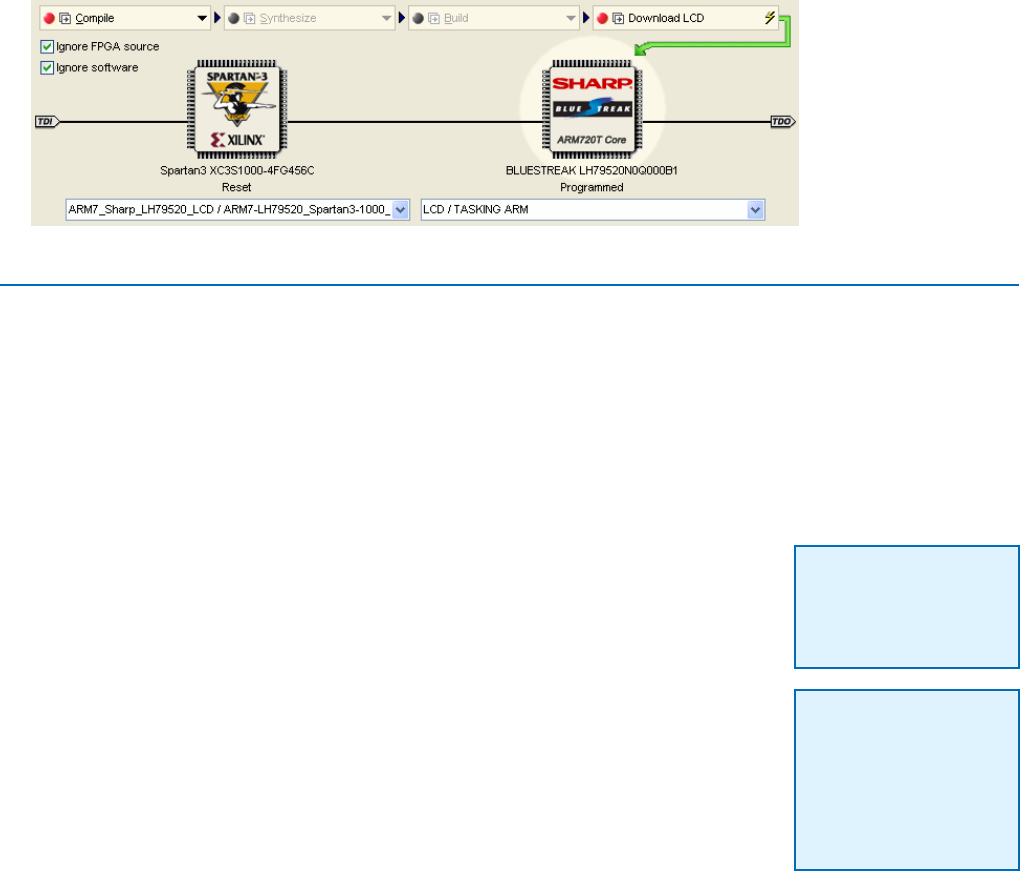
ARM720T_LH79520 – Sharp LH79520 SoC with ARM720T 32-bit RISC Processor
• Download of the embedded code targeted to the discrete ARM720T device. Click on the LH79520 device in the Hard
Devices chain to access the process flow required to download the embedded software to the processor, as illustrated below.
Notice that the process flow consist of compilation and download only.
On-Chip Debugging
To facilitate real-time debugging of the processor, the ARM720T_LH79520 includes On-Chip Debug hardware that can be
accessed using the standard JTAG interface.
With this hardware, the following set of additional functional features are provided:
• Reset, Go, Halt processor control
• Single or multi-step debugging
• Read-write access for internal processor registers
• Read-write access for memory and I/O space
• Unlimited software breakpoints.
Accessing the Debug Environment
You can have multiple debug
sessions running simultaneously
– one per embedded software
project associated with a
processor in the design.
To start a debug session for the
embedded code running in a
'soft' processor in the design,
simply right-click on the icon for
that processor, in the Soft
Devices region of the view, and
choose the
Debug
command
from the menu.
Debugging of the embedded code within an ARM720T_LH79520 processor is carried out by
starting a debug session. Prior to starting the session, you must ensure that the FPGA design has
been downloaded to the target FPGA device and the embedded code has been downloaded to the
physical ARM720T device (see
Downloading your design).
To start a debug session for the embedded code running in the ARM720T_LH79520, simply right-
click on the icon for the physical device in the Hard Devices region of the
Devices view, and
choose the
Debug command from the pop-up menu that appears.
The embedded project for the software running in the processor will initially be recompiled and the
debug session will commence. The relevant source code document (either Assembly or C) will be
opened and the current execution point will be set to the first line of executable code (see Figure
16).
24 CR0162 (v2.0) March 10, 2008


















